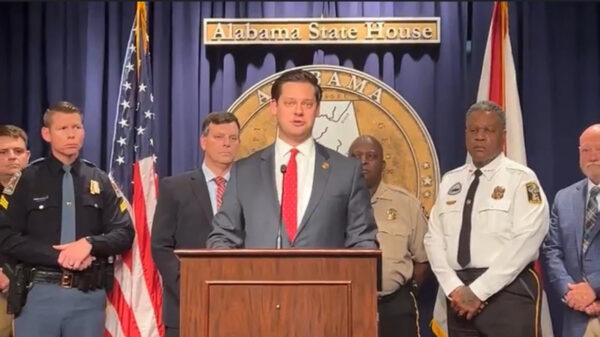By Bill Britt
Alabama Political Reporter
MONTGOMERY—Senators Gerald Dial (R-Lineville) and Quinton Ross (D-Montgomery) filed a joint resolution calling for joint a legislative committee, to investigate confidentiality issues related to complaints lodged with the State Ethics Commission.
The measure is, in part, a response to the recent imbroglio surrounding an anonymous complaint against State Superintendent of the Department of Education candidate, Dr. Craig Pouncey.
At the center of this controversy is an anonymous letter, coupled with emails from 2009, containing meager allegations against Pouncey. The letter was sent to the Ethics Commission by Juliana T. Dean, General Counsel for ASDE, at the urging of Board member Mary Scott Hunter, according to sources inside ASDE and others close to the situation.
Earlier this week, Senator Dial sent a letter to Attorney General Luther Strange, asking for a full investigation into these allegations.
The joint resolution recognizes that “baseless and groundless complaints serve primarily to destroy the credibility of innocent persons if the existence of a complaint becomes known to the public before it has been properly investigated.”
Circumstances surrounding the Superintendent’s vote, as well as the actions taken by Hunter and Dean, facilitated a response from Hugh Evans III, general counsel for the State Ethics Commission, which was leaked to school board members and the press.
APR emailed 2 questions to Evans on August 8, after being told by Theresa Davis that we should submit all questions by email. Our questions to Evans were:
1. Why did you send a letter to Juliana T. Dean, General Counsel for ASDE informing the board of an ethics complaint against Dr. Craig Pouncey?
2. Why did you feel it necessary to remind the Board of its duty under §36-25-17?
Davis verified forwarding APR’s questions to Evans on the same day, however, Evans failed to respond to our request for information.
The joint resolution cites Section 22 36-25-4.1 of the Code of Alabama 1975, which provides in pertinent part: “… no complaints shall be made available to the public or available on the Internet until the disposition of the matter. In no event may any claim be made public or available on the Internet if the complaint is dismissed or found not to have probable cause.”
On the Senate floor, Dial sternly expressed that the Commission should not consider anonymous complaints and making a complaint publicly known was out of bounds.
An expert in State Ethics law speaking on background, said the problem might lie in the commission’s lack of sound procedure, as it frequently responded differently to the same situation. He stated, “They far too often seek to please, rather than strictly enforce [the laws] which leads to confusion and error.”
If the measure passes the Joint Legislative Committee will proceed with a full investigation confidentiality issues involved with complaints filed with the State Ethics Commission.





















































